#NHTSA
Kia Recalls 507,000 Cars Over Glitchy Airbags
Following a March investigation by the National Highway Traffic Safety Administration, Kia Motors is recalling more than 507,000 vehicles in the United States to solve an electronic glitch that may prevent airbags from deploying in the event of a collision.
The NHTSA launched the probe after four people died in accidents involving Kia and Hyundai vehicles with airbags that failed to inflate. In total, the agency’s investigation noted failed deployments in the 2011 Hyundai Sonata and 2012-2013 Kia Forte in the U.S. There was also an incident involving the Forte in Canada.
Severe Corrosion, Steering Failure Sparks Investigation of Older Mazda 6 Models
Mazda can’t seem to shake a recent history that saw its vehicles fall victim to the flesh-eating disease in embarrassing numbers. We’ve seen corrosion issues crop up in a myriad of recalls issued by the automaker over the past several years, and it’s raised its flaky brown head once again.
This time, it’s just a preliminary investigation, but probes conducted by the National Highway Traffic Safety Administration have a way of turning into recalls in a hurry. The model in question is the 2009-2010 Mazda 6, and the issue is a subframe that can become so corroded, you might have trouble staying on the road.
This is a Mess: EPA Begins Quest to End California's Fuel Waiver
The Trump administration has enacted phase two of its plan to revise Obama-era rules designed to cut pollution from vehicle emissions. In a proposal sent to the White House Office of Management and Budget on Thursday, the Environmental Protection Agency announced its intention to rescind the California waiver that separates it from the federal standards the state uses to regulate greenhouse gas emissions from automobiles.
Since allowing California to set its own emission standards would effective split the country’s auto market, the EPA has been clear that its ideal solution would be to cut a deal with the Golden State. Agency head Scott Pruitt previously said California “shouldn’t and can’t dictate [fueling regulations] to the rest of the country,” but acted in a manner that suggested a compromised could be reached.
This was followed by a lawsuit filed by 17 U.S. states, along with the California governor’s office, California attorney general, and the California Air Resources Board (CARB), alleging that the EPA had “acted arbitrarily and capriciously” in its decision to roll back the previous administration’s decision. While the odds are good that the Trump administration wasn’t ever interested in bending to California’s more stringent pollution policies, this was likely the point of no return — squashing any hope for meaningful negotiations.
NHTSA Probes Latest Autopilot-related Tesla Crash
Last Friday’s crash of a Model S in South Jordan, Utah will get the magnifying glass treatment from the National Highway Traffic Safety Administration. The agency announced Wednesday it will send a team of investigators to probe why the vehicle — which the admittedly distracted driver said was in Autopilot mode at the time of impact — collided with a stopped fire truck at 60 mph.
It’s the second NHTSA investigation of an Autopilot-related collision this year.
NHTSA Study Confirms New Cars Are Safer, Regulations Not a Scam
You might want to sit down for this one. The National Highway Traffic Safety Administration (NHTSA) released a study this week showing older cars without modern day safety hardware are — and I’m sorry to say this — far more dangerous than newer vehicles. Unbelievable, right?
Of course not. As tacked on and obnoxious as a lot of safety regulations often seem, they are delivering onto us safer automobiles. The old maxim of “they don’t build cars like they used to” is absolutely true, but not in the way your grandfather meant it. According to data compiled from the U.S. government’s Fatality Analysis Reporting System (FARS) between 2012 and 2016, fatal incidents occurred in older model-year vehicles at a much higher rate than their newer counterparts. Not surprisingly, the NHSTA also suggested the severity of an occupant’s injuries increase the older a vehicle gets.
Still, the disparity between the vehicle age groups is surprisingly vast.
The NHTSA Might Finally Get That Lead Administrator It's Been Missing
It’s been over a year since the National Highway Traffic Safety Administration had someone officially running the show. While plenty of political appointments have been held up by Senate approval, the NHTSA is one President Trump has neglected since taking office. Former General Electric executive Heidi King has been the Deputy Administrator since September, and will be the one Trump taps to assume overall leadership of the agency. It’s about time.
The NHTSA has to cope with the planned fuel efficiency changes, oversee the neverending Takata airbag recalls, and start doing some damage control with autonomous vehicle development. While the recall issues are likely to remain business as usual, the current administration has pursued lax standards for both autonomous safety and corporate efficiency rules — and both have seen growing opposition.
Entire states are already pushing back against the proposed fuel efficiency rollbacks and there have been two fatalities involving self-driving and semi-autonomous technology within the last month. Because of this, promoting King might be a wise choice. Her corporate ties have some people concerned she’ll go easy on businesses, but at least she already has some experience in dealing with the big issues.
NHTSA Investigates Why Kia, Hyundai Airbags Didn't Deploy in Fatal Crashes
The National Highway Traffic Safety Administration has opened a probe into two older-model Kia and Hyundai vehicles in the wake of six head-on collisions, hoping to discover why the vehicles’ airbags failed to deploy.
Included in the investigation is the 2011 Hyundai Sonata and Kia Fortes from the 2012 and 2013 model years. The collisions reported by the safety agency resulted in four deaths and six injuries.
The Wheels Are Coming Off At Ford - Steering Wheels, That Is
Ford Motor Company has announced a recall of 1,378,637 vehicles for a very concerning problem: steering wheels that may come loose and detach from the steering column while the car is underway.
It’s a problem first investigated by the National Highway Traffic Safety Administration last year, but Wednesday’s recall spreads a wider net. Affected vehicles include Ford Fusion and Lincoln MKZ sedans built in the U.S. and Mexico over five model years. According to Ford, the problem stems from a key bolt that just can’t stay married to the threads.
Vehicle Recalls Are Down in the U.S., but Not Everyone's Celebrating
Automotive recalls in the United States dropped to the lowest level since 2013 last year. In 2017, domestic recalls fell to 30.7 million — far less than 2016’s record high of 53 million. That’s good news, right?
Probably. The National Highway Traffic Safety Administration demands manufacturers be Johnny-on-the-spot with fixes ever since General Motors’ ignition switch scandal back in 2014. That means it’s either gotten incredibly lax in its duties under Donald Trump’s watch or automakers simply had a better year. While the NHTSA suffered important staff shortages for literally all of 2017 and has seen the current administration pressing for less regulation overall, the recall decline could also be attributed to the Takata airbag inflator situation finally winding down.
However, it’s no secret that the Obama administration wanted to see the safety administration exercising its regulatory muscle. In 2016, automakers issued a record 924 recall campaigns. That number fell to 813 last year. The NHTSA has also neglected to impose new vehicle safety fines since Trump took office and been operating without permanent leadership for more than 13 months.
Safety Group to Senate: Clue in to the 'Baseless and Exaggerated Predictions' Swirling Around Autonomous Vehicles
Last year, the National Highway Traffic Safety Administration embraced autonomous technology by redefining how it categorized cars. Spurred by automakers and tech companies, the government has opened its eyes to this new technology and seen it as a way to potentially save lives by reducing the number of roadway accidents caused by human error.
Congress has been confronted with numerous pieces of legislation on the matter, too — prospective laws that would allow automakers to put hundreds of thousands of autonomous vehicles on the street, without the need to adhere to existing safety regulations. Many have called the move necessary if the United States hopes to be the first country to produce a truly self-driving car and start saving some lives.
It sounds almost too good to be true, and some claim it actually is. A group of public interest organizations is attempting to sound the bullshit alarm, claiming automakers are misleading government officials in the hopes of developing and profiting from unproven technology.
After a Year's Delay, U.S. Decides All Electric Vehicles Must Make Noise by 2020
First ordered by Congress in 2010 and delayed endlessly ever since, the U.S. Department of Transportation has finalized a date for the end of “noiseless” electric vehicles and hybrids: September 2020.
That’s a year after the previous deadline, announced in the final days of the Obama administration in November 2016. The National Highway Traffic Safety Administration subsequently froze the date in order to hear arguments from automakers. With that process now wrapped up, the new (and unchanged) rules mean any four-wheeled vehicle with a GVWR of less than 10,000 pounds must emit a pedestrian-warning noise at speeds below 18.6 miles per hour.
Enjoy the “silence” while you can.
Here's Trump's Ace in the Hole for Dialing Back MPG Rules
It’s no secret that the Trump administration will eventually come forward with a relaxed version of existing automotive fuel economy targets. Despite previously agreeing to them, most automakers have decided Obama-era goals are less than ideal and have reached out to the current president to take it easy on them — something he appears willing to do.
However, the White House is going to have to sell the decrease to numerous states that claim they won’t accept such a proposal, as well as a driving public that likely doesn’t want to spend more money on fuel than it has to. Fortunately, the administration has a strategy for this, and has tapped the National Highway Traffic Safety Administration for backup. It’s trying to prove that cutting fuel economy would actually make vehicles safer.
Drowsy Driving Might Be a Bigger Problem Than Previously Thought
Back in 2014, an American Automobile Association study estimated that tired motorists were responsible for around 328,000 accidents annually — 6,400 of which were fatal. However, unlike drunk driving, there’s no sound metric for assessing the true scope of the problem. Getting tired is something that just sort of happens. People don’t stay out all night not sleeping because it’s fun, the police can’t test for it, and almost nobody is going to say they were dozing off behind the wheel in an accident report — either because they are too embarrassed or stopped feeling tired at the moment of their brush with death.
That makes the issue a bit of a phantom menace. We all know it’s a problem, but the frequency remains debatable. Fortunately, a new study released by AAA this week helps clear things up. Researchers affixed dashboard cameras to 3,593 vehicles in order to monitor the drivers’ faces, then used a PERCLOS-based fatigue monitoring strategy to come to the conclusion that drowsiness is a contributing factor in 10.6 to 10.8 percent of all accidents resulting in significant property damage, airbag deployment, or injury.
Toyota Recalling Late-model Prius and Specific Lexus SUVs
Toyota announced a recall of roughly 49,000 vehicles in the United States on Wednesday. Affected models include the 2016 Toyota Prius, the 2016 Lexus RX, and the 2015-2016 Lexus NX crossover. The safety issue involves the airbag systems that could fail due to an electrical problem.
Unlike the scary Takata recalls, the biggest danger here is the non-deployment of the front or side-curtain inflators. Toyota claims an open circuit could develop within the system’s sensor. If this were to occur, the airbag warning light should illuminate to indicate a failure.
Senate Fumbles With Self-driving Legislation
Bipartisan legislation to “promote the safe development of autonomous vehicles” is currently being held up by a trio of Democrats, according to U.S. Senate Commerce Committee Chairman John Thune. While much of Congress is hoping to push the AV START Act through, Sen. Dianne Feinstein and two colleagues have blocked unanimous consent — stalling the bill’s swift progress by forcing a floor vote.
Thune, who sponsors Senate Bill 1,885, told reporters he hoped Feinstein and the other Democrats would see the light. “We could save a lot of lives,” Thune said, adding that 94 percent of car crashes are caused by human error. “It is cutting-edge technology, transformational in terms of the economy.”
However, the opposition isn’t convinced autonomous vehicles are at a point where it’s safe to roll them out en masse on public roads.



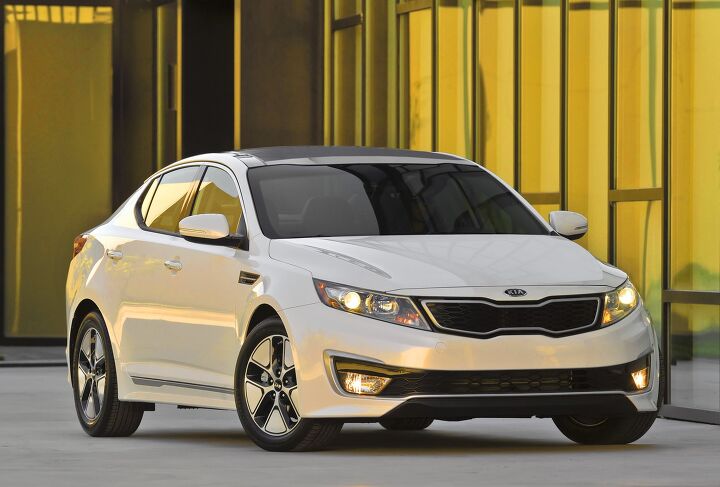
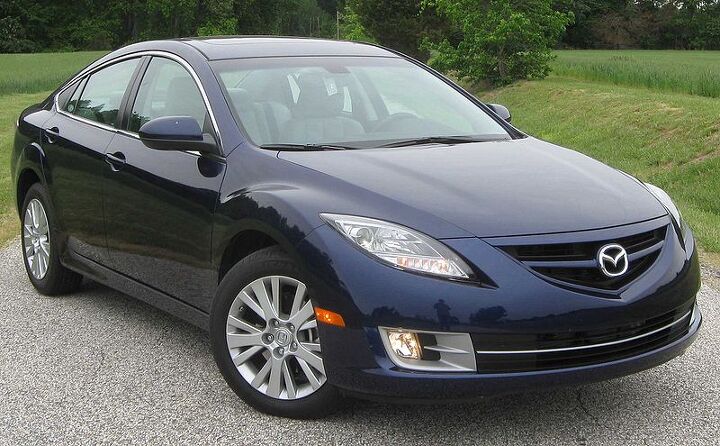


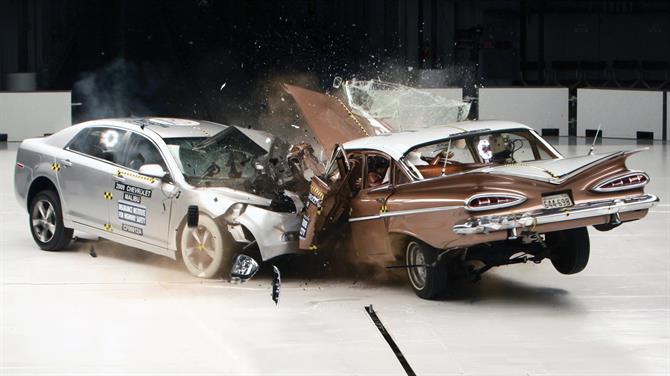




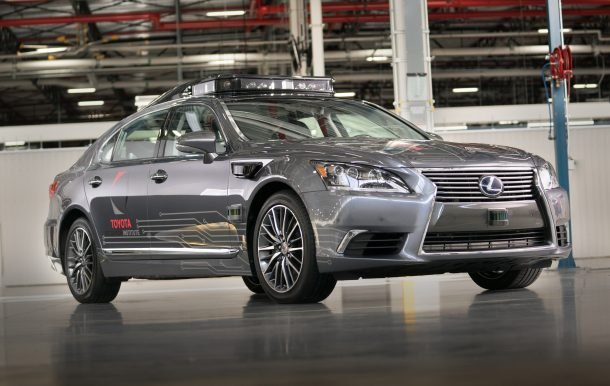
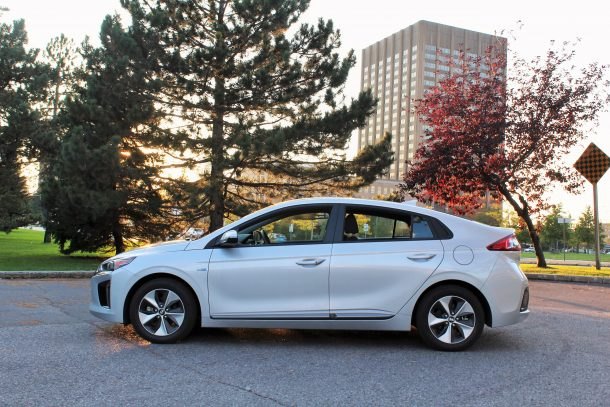
















Recent Comments